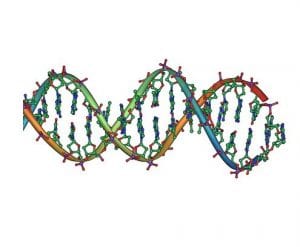The development of CRISPR technology has drastically progressed in the recent years, and He Jiankui, a scientist from China, took a step that most people judge to be crazy: he used CRISPR technology to create a human who is resistant to the HIV virus.
What is CRISPR? Good question.
CRISPR-Cas9 is a gene editing tool made from an ancient bacterial immune system. In bacteria, this system identifies DNA of invading viruses and send in different enzymes, such as Cas-9 to target and cut out a piece of DNA. Researchers quickly realized that almost any sequence of DNA can be cut out and modified the system to any sequence desired, even one that can prevent HIV. This is what Jianku’s work comprised of.
Jiankui and his team targeted the gene CCR5, a gene that provides the blueprint for the cell surface protein involved in the immune system, in the DNA of human embryos. The cell surface protein is usually involved in relaying information between cells, and HIV can use it to dock onto cells, infecting them with their own genetic material. Jianku eliminated the CCR5 gene to prevent HIV from docking onto any of the baby’s cells. However CRISPR-Cas9 induces mutations that scientist cannot fully control, and Jianku could not replicate the gene to the exact level. So, he instead created a “mixture of disrupted gene products”, which could potentially have a negative effect on human health.
At first glance, Jiankui’s experiment might be seen as beneficial, but Jiankui’s decision to create this human has been considered by other scientist as premature, drastic, and unethical, and has caused a lot of controversy. Although this was not the first time a scientist tampered with a human embryo, many scientists are outraged and believe that his experiment was a violation of human ethics. According to an article written by Allison Eck, the most notable ethical breach was conducting this experiment without the consent of other scientists, ethicists, regulators, or institutional review boards.
Debates over Jianku’s work have been circulating since the announcement of his experiment. Personally, I think that in the future, if we can prevent HIV and other harmful diseases that cause death, CRISPR can be an effective tool. However, as of now, we do not fully understand are aware of all of its effects. Therefore it is dangerous to test it on other humans. In the wrong hands, this powerful technology might be used in the wrong way and can cause huge repercussions. What do you think?



Leave a Reply